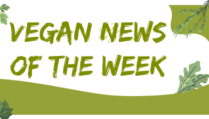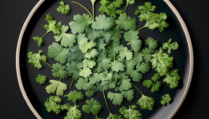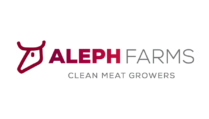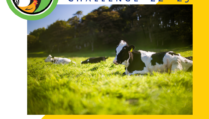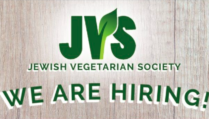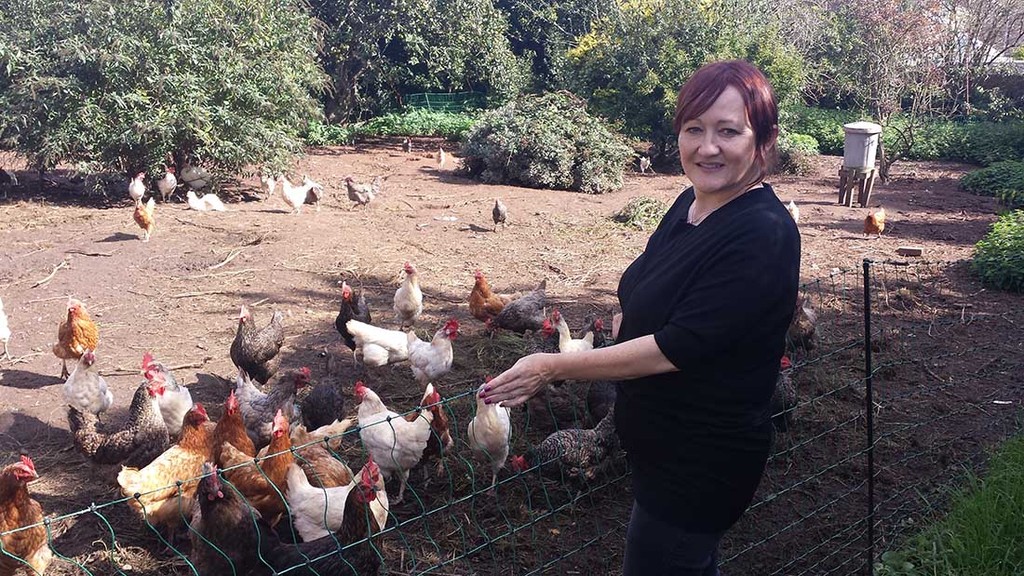By Alistair Driver, From FGInsight [4th December 2015]
The media had a field day when Jeremy Corbyn appointed vegan anti-meat campaigner Kerry McCarthy to the Shadow Defra post. But in a revealing interview she insisted she could be more of a friend than a foe to the farmer.
Kerry McCarthy is keen to shift perceptions, at least among the farming fraternity.
Her appointment as Shadow Defra Secretary in September certainly raised eyebrows – greeted in equal measure with glee in the media, already revelling in the shambles of Jeremy Corbyn’s first Shadow Cabinet, and understandable bemusement within the farming sector.
‘You couldn’t make it up’, was the general consensus.
The Bristol MP, the first vegan in Parliament, had made her mark partly by campaigning to encourage people to eat less meat.
Railing loudly against the move towards large-scale intensive ‘factory farming’ in the UK, she had previously condemned the ‘immense suffering’ inflicted by UK farmers on animals, which she suggested ‘spend their entire lives crammed inside dark, filthy sheds’.
Not to mention ‘animal agriculture’s contribution to world hunger, environmental degradation and skyrocketing healthcare costs’.
A former vice-president of the League Against Cruel Sports, she has been a vocal critic of the badger cull, branding it a ‘complete and utter failure’, and has campaigned vociferously on issues like antibiotics in livestock and the impact of pesticides on bee health.
So here she is, an enemy of farming, strategically positioned by the vegetarian Mr Corbyn to inflict maximum damage?
No. In fact, far from it, she insisted, as we met over coffee and tea with soy milk in the cafe of Westminster’s Portcullis House on Monday.
“I didn’t Jeremy for the leadership so this idea I am some mad, vegan, lefty, Corbynista-type just is not true. The vegan bit is right, hopefully the mad bit is not,” she said with a smile.
’Treat meat like tobacco’
But what of her suggestion in an interview with vegan organisation Viva! ‘meat should be treated in exactly the same way as tobacco, with public campaigns to stop people eating it’?
The comment was driven by nutritional concerns, not an animal welfare agenda, she replied, admitting in the past she had, like other MPs, been guilty of playing to her audience.
She insisted she had no plans to tax meat or force people to ‘stand outside like smokers to eat their burgers’, as had been suggested, but wanted people to be given ‘the information they need to need to make the right choices’ about eating meat, for example through better labelling, she said.
“It is about people making choices for themselves. If I had not been talking to a vegetarian magazine I would have put it in a much broader context, such as the need to lower the impact of sugar and salt in food,” she said.
Ms McCarthy became a vegetarian at the age of 16 and took the next ‘logical step’ of becoming a vegan 11 years later.
“If your ethical stance is you do not want animals to die to feed you then veganism is the logical follow-on,” she said.
She is ‘very strict’, with virtually her only concession to animal products being the wool in clothes she wears.
“I have accidentally been given things with dairy in but it makes me sick. It is as if my body can’t do it anymore,” she added.
But she insisted her stance should not affect her ability to work on behalf of farmers on some key issues, just as it did not affect her relations with others.
“I live in a world where most people eat meat. My constituents eat meat, my family eat meat – I buy people dinner and they eat meat.”
She said she was ‘genuinely interested in the subject’, highlighting previous roles including chair of a Parliamentary group on agroecology, and was keen to engage with the industry – an impression never given by her predecessors, Maria Eagle and Mary Creagh.
Economic viability
Ms McCarthy outlined her two main priorities as the economic viability and environmental sustainability of the farming sector, followed by maintaining high animal welfare standards.
Referring to her status as the ‘only Labour MP who had worked in city’ – having trained as a lawyer she worked as a solicitor for investment bank Merril Lynch for nearly a decade before becoming an MP – she insisted she was coming at the job ’from a business background’.
“That means I am very interested in the economic viability of the sector,” she said.
She acknowledged the complexity of the economic arguments around all UK farming sectors, including the supply chain issues including the role of the adjudicator.
She admitted she did not yet have the answers but said she wanted to explore the issues, including ’how the CAP works, the implications of the Transatlantic Trade and Investment Partnership (TTIP) deal and the ramifications for farming of the Europe debate.
“Nobody has got the answer but I want to listen to people. I think the industry needs to come together to present possible solutions to politicians which we can explore and run with,” she said.
She accused her counterpart, who she will go head-to-head with at the Oxford Farming Conference in January, of getting her priorities wrong.
“Liz Truss has got an incredibly narrow focus. If you look at the food and farming plan, it is just a marketing exercise about selling widgets to China and I do not think farming works like that. It is much more complicated than that.
“These trade missions only get you so far. We have to make farming sustainable in the long-term, rather than just relying on promotional drives,” she said.
Badger cull evidence

Despite her efforts to engage on important farming issues, Ms McCarthy made it clear she has not changed her her views on issues like large-scale livestock farming and the badger cull since she took up the post.
But the Bristol MP, who said she was no longer a vice president of LACS although she is still listed as a political supporter, insisted she was not bound by dogma.
On the badger cull, she promised Labour would reconsider its opposition if evidence being collected by the Animal and Plant Health Agency showed culling was having a significant impact on cattle disease in and around the cull areas.
“Obviously we would need to establish that there was an improvement. We have always said, and my position is not different to Maria Eagle or Mary Creagh on this, it has got to be evidence-led,” she said.
“If the evidence shows culling is the best way to curb TB, then I would review my position in light of that evidence.”
However, she stressed she ’very much doubted’ that would be the case on the basis of ’nearly all the evidence to date’, while the ’shambolic way the pilots have been conducted’ would make it hard to extrapolate clear data anyway, she added.
Ms McCarthy sought to dispel suggestions she and opponents of culling in her party cared more about badgers than cattle or farmers.
“It is not that I am not sentimental about badgers because they are cute or fluffy and I don’t care about cows. I care about farmers’ livelihoods and about cows suffering from horrible illness – I would coming from my background,” she said.
She fully accepted the need to cull wildlife in some cases, for example shooting magpies to protect songbirds or controlling deer populations.
“I am not the equivalent of an animal pacifist who says you must never kill any creature. But on bovine TB I am just not convinced the case has been made.”
Largescale dairy units

Ms McCarthy, who recently spoke out on behalf of the Alliance to Save our Antibiotics as it campaigns to reduce antibiotic use on farms, said she was ’not all keen on the drive towards intensification’ in UK farming.
She acknowledged there were examples where large-scale dairy units could have beneficial welfare implications.
But, referring to the ’Not in my Cuppa’ campaign against large, indoor dairy farms which she backed, she said: “I think basically people want to have their animals outside – it is not just about whether they are being ill-treated’.
While some of her concerns are welfare-related, she also linked large-scale dairy farming to concerns about disease spread, overuse of antibiotics and problems like mastitis.
Acknowledging the issue of milk price was ’more complex’ than domestic supply, she said the move to large-scale units was placing more pressure on ‘most farmers in the middle who do not have the resources to go to a massive intensive model’.
“If you have these intensive farmers, these mega dairies churning out more milk and selling to supermarkets at an ever lower price, the ones in the middle will go out of business, surely? It is good for those people who do it but it doesn’t solve it overall.
“You have to look at it from a global perspective but in most industries, the answer to oversupply and falling prices isn’t to increase production,” she said.
Modernising farming
Ms McCarthy has been visiting farms since her appointment as she looks to come up with policies to challenge the current Government.
She was particularly impressed with a recent visit to the Game and Wildlife Conservation Trust, Leicestershire, where the focus was on ‘best practice in terms of environmental management’.
These included discussion about the far-reaching benefits of worms in aerating the soil, including preventing flooding, and the merits of beetle banks and measures to attract wild birds onto farms.
“In some ways you are talking about modernising farming by taking it back to how it was a long time ago,” she said.
“I am not going to dictate to farmers how they do things, but I am very keen to encourage people who are going that way.”
But she added: “Yet the biggest issue is economic viability. I haven’t met people yet who have got the answer – but it is the biggest issue I am grappling with.”
Kerry McCarthy – then and now

On meat and tobacco
“I really believe that meat should be treated in exactly the same way as tobacco, with public campaigns to stop people eating it.
“Progress on animal welfare is being made at EU level… but in the end it comes down to not eating meat or dairy.
“The constant challenging of the environmental impact of livestock farming is making me more and more militant.”
Interview with Viva! magazine, March 2015
“It is about people making choices for themselves. If I had not been talking to a vegetarian magazine I would have put it in a much broader context, such as the need to lower the impact of sugar and salt in food.”
FG interview, December 2015
On encouraging people to eat less meat
“By cutting our meat consumption and slowing the rate at which animals are bred, we could redirect the crops that they would have consumed to the people who need them most.
“As meat-based diets spread to developing countries, subsistence farmers are being driven off their land.
“Efficient, plant-based agricultural models are being replaced by intensive animal agriculture, which also pollutes the air and water and leads to desertification that renders the once-fertile land barren.”
Article for New Statesman, June 2013
“I live in a world where most people eat meat. My constituents eat meat, my family eat meat – I buy people dinner and they eat meat.”
FG interview, December 2015
On indoor housing and animal welfare
“Aside from their environmental and health impacts, the meat, dairy and egg industries cause immense suffering to more than a billion animals every year in the UK alone, most of whom spend their entire lives crammed inside dark, filthy sheds.
“They don’t get to breathe fresh air until they are on their way to the abattoir, where many have their throats slit while they are still conscious.”
Article for New Statesman, June 2013
“At a global level it is clear the EU has reasonably stringent animal welfare standards. That is not to say everybody adhere’s to them. It is important to expose the people who don’t and recognise the people who are doing the right thing.”
“Farmers have said to me other EU farmers have less onerous regulations imposed on them. That is one of the things we need to discuss in the EU referendum – we need a common EU position so we keep to the same standards.”
FG interview, December 2015
On the badger cull
“Tories enthusing about rolling out the badger cull… despite pilots being a complete and utter failure. Why?”
Tweet during Defra Questions, Sept 10, 2015
“It is clear that the Government isn’t listening to sense. There is a strong consensus amongst scientists that the badger cull would have little or no impact on levels of bovineTB, and that vaccination – of badgers and of cattle if EU approval is granted – is the way forward…
June 2013, after speaking in a debate in Parliament on the cull
“We have always said, and my position is not different to Maria Eagle or Mary Creagh on this, it has got to be evidence-led.
“If the evidence shows culling is the best way to curb TB, then I would review my position in light of that evidence. But I very much doubt that would be the case (because of) nearly all the evidence to date. The shambolic way the pilots have been conducted would make it hard to extrapolate clear data.”
“I am not the equivalent of an animal pacifist who says you must never kill any creature. But on bovine TB I am just not convinced the case has been made.”

